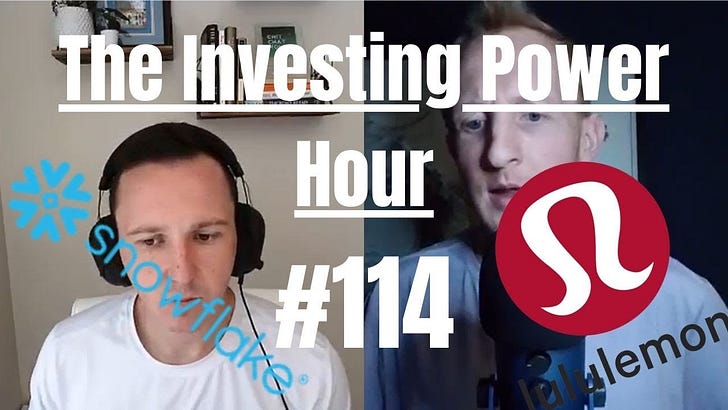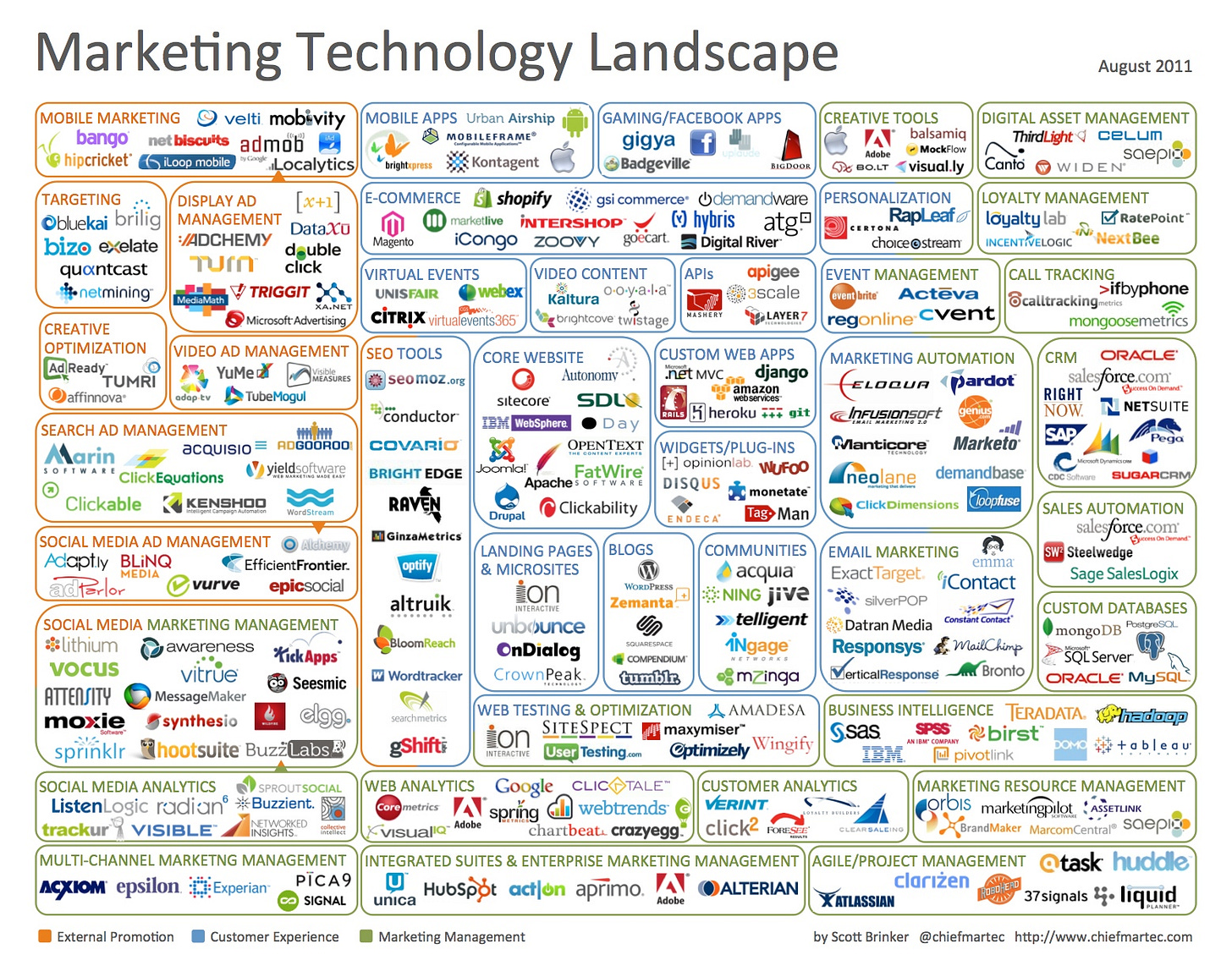The Software Investing Crapshoot
Plus, discussions on Lululemon and Roaring Kitty on this week's live podcast recording
YouTube
Spotify
Apple Podcasts
On this week’s Power Hour, Ryan came up with a list of 10 software stocks trading at 52-week lows:
Snowflake
Atlassian
Veeva Systems
MongoDB
Paycom
Paylocity
Dayforce
Dropbox
Workiva
EPAM Systems
We perused through each stock on Finchat.io to see what the financials looked like. We found a few interesting candidates to research like Veeva Systems and Paycom Software. They were both consistently profitable and looked fairly cheap, which is a rare combination in software.
I still don’t know if I can buy any of these stocks though, no matter how cheap they get. Software seems like a crapshoot. I have no confidence in competitive moats, terminal value, or why one software platform is better than another. Essentially, everything I need to have confidence in to make an investment is missing.
And there are an endless amount of software companies. Take Dayforce, a company neither of us had heard of until the live recording.
According to its website, Dayforce helps you “Realize the full potential of your workforce with HR, payroll, workforce management, and more in one powerful HCM solution.”
Have I not read this exact same thing on 20 other investor relations pages? And yet, Dayforce apparently has a market cap of $8 billion and generates $1.5 billion in revenue.
Do I have any clue why customers will stick around at Dayforce? Do I have any confidence a competing product won’t undercut them on price? Do I have any idea whether a new start-up is going to sprout up 12 months from now with a better solution?
It is so easy — relatively, of course — to start a software platform in 2024 compared to 30 years ago.
I mean, just look at the famous marketing technology landscape graphic:
And that is just marketing!
Perhaps you work in this industry and can figure out why one company has a technological advantage (or any other advantage) that can lead to outsized and efficient revenue growth. Efficient means growing while not burning a ton of cash each year.
However, I think there are very few investors who could have these insights and very few software stocks that exhibit these two traits (growing while profitable).
And that makes it a tough pond to fish in. Why would I spend so many hours studying this sector then?
In software, it is rare to find network effects, economies of scale, or a brand that matters.
Yes, there are high switching costs. I’m no expert on the company, but I believe this is one of the key insights to what makes Constellation Software so successful. Churn can be low from existing customers, so if you buy at a cheap price the cash flows are predictable.
The problem is, software stocks have not traded at dirt-cheap prices for the last 10 years:
(chart from the Clouded Judgement newsletter)
That pandemic software bubble was absurd. What a time.
Expensive stocks with a ton of competition that are hard to understand and seem to have 20 copycats springing up every day. Not exactly the best recipe for strong long-term returns for shareholders.
Chit Chat stocks is presented by:
Public.com just launched options trading, and they’re doing something no other brokerage has done before: sharing 50% of their options revenue directly with you.
That means instead of paying to place options trades, you get something back on every single trade.
-Earn $0.18 rebate per contract traded
-No commission fees
-No per-contract fees
Options are not suitable for all investors and carry significant risk. Option investors can rapidly lose the value of their investment in a short period of time and incur permanent loss by expiration date. Certain complex options strategies carry additional risk. There are additional costs associated with option strategies that call for multiple purchases and sales of options, such as spreads, straddles, among others, as compared with a single option trade.
Prior to buying or selling an option, investors must read and understand the “Characteristics and Risks of Standardized Options”, also known as the options disclosure document (ODD) which can be found at: www.theocc.com/company-information/documents-and-archives/options-disclosure-document
Supporting documentation for any claims will be furnished upon request.
If you are enrolled in our Options Order Flow Rebate Program, The exact rebate will depend on the specifics of each transaction and will be previewed for you prior to submitting each trade. This rebate will be deducted from your cost to place the trade and will be reflected on your trade confirmation. Order flow rebates are not available for non-options transactions. To learn more, see our Fee Schedule, Order Flow Rebate FAQ, and Order Flow Rebate Program Terms & Conditions.
Options can be risky and are not suitable for all investors. See the Characteristics and Risks of Standardized Options to learn more.
All investing involves the risk of loss, including loss of principal. Brokerage services for US-listed, registered securities, options and bonds in a self-directed account are offered by Open to the Public Investing, Inc., member FINRA & SIPC. See public.com/#disclosures-main for more information.







Well said, though with some B2B software products, "the moat" might be the sales/support team that builds up and maintains a relationship with the customer. That's basically the edge my company has, which is why we're taking market share from competitors.
I'm on the tech side of things but constantly adding bespoke features etc for customers to tailor the product to their needs.
Aside from this it's pretty much a commodity business.
Software stocks are becoming hated equities these days. Many got bid up in the AI hype even as their management teams kept emphasizing their AI prowess and revenue generating potential...when in reality we found out recently that there was not much behind the curtain. e.g. MDB. In this Q1 earnings call we clearly found out that they are struggling to convince their customers that they have AI tools, software, services. They remain a database company that is trying to not get disrupted or budget-cut out of the equation.
I could not agree more with you that as investors we have to be more discerning in terms of which software stocks we buy. Lots of competition. Many vendors vying for the same enterprise dollar.
Cheers!